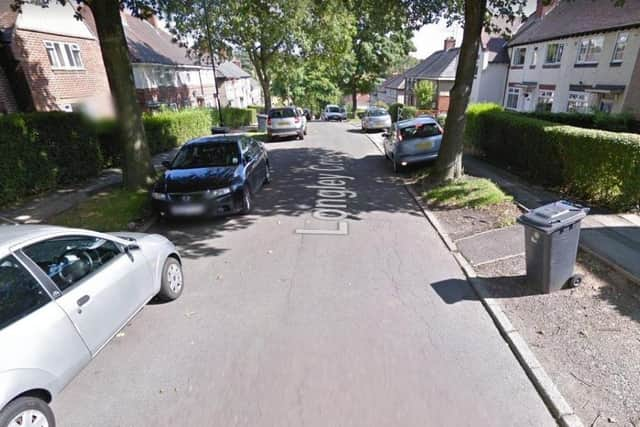This Sheffield 'murder' from 1953 almost became one of the country's worst miscarriages of justice
and live on Freeview channel 276
The body of John Hall was discovered in the gas-filled frontroom of the house he shared in Longley Crescent, on October 15, 1953.
His father, 64-year-old Charles Hall, was discovered in the same room in a critical condition by neighbours who had not seen the pair for a number of days.
Advertisement
Hide AdAdvertisement
Hide AdWhat first appeared like a tragic accident, it would quickly emerge that Charles Hall had decided to end both of their lives.


John had severe learning difficulties with the mental age of a small child and, after his mother’s death in 1950 from cancer, Charles had become his sole carer and seems to have struggled to cope.
The retired steel worker had also become convinced that he too was suffering from cancer and had decided that the best thing to do was to end both of their lives by filling the front room with coal gas.
But police became suspicious and, on recovering in hospital, Charles confessed to killing his son and, pleading guilty in November at Leeds Assizes, was sentenced to death.
Advertisement
Hide AdAdvertisement
Hide AdBeing almost 70 years ago, and despite testimony in the court that Charles had been an extremely caring and devoted father, attitudes were significantly different and Charles was essentially being treated exactly the same as multiple murderer John Christie, who was executed the same year.
The judge seems to have had no other choice to pass the death sentence as, under English Law at the time, that was the mandatory sentence for murder, and because Charles had declined to put forward a diminished responsibility defence to the crime, he had essentially tied the knot around hiw own neck.
An appeal was lodged and, simultaneously, an appeal for clemency was made by the judge to the Home Office, which had the power to reduce the sentence to one of life imprisonment.
However, from reports from the time, it appears that Government officials were more concerned with setting the date of execution, and the Sheffield Telegraph reported on November 27 that Charles would be hanged at Durham Prison on December 15.
Advertisement
Hide AdAdvertisement
Hide AdBut Sheffield residents rallied and a petition with more than 4,000 signatures was sent to the Home Secretary, calling for mercy and, eventually, on December 2 Charles was reprieved. The council also said they would keep his home open to return from on his release.
Under normal circumstances, anyone who had the death sentence commuted would serve at least 15 years in prison, meaning Charles would almost surely have died in jail.
However, within a year there were reports of his release and he returned to his home on Longley Crescent.
Records also show that he remarried in 1957 and seemingly died in 1963, aged 74. But had it not been for neighbours and local churchgoers who first launched the petition, Charles Hall could have easily been added to the list of the most appalling miscarriages of justice, alongside Ruth Ellis and Derek Bentley.